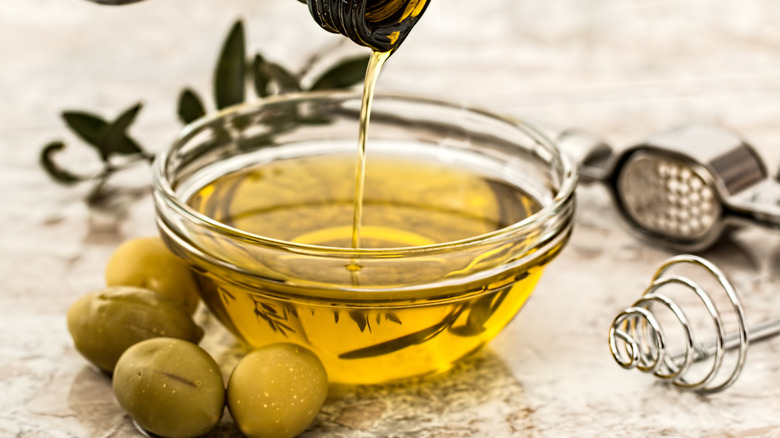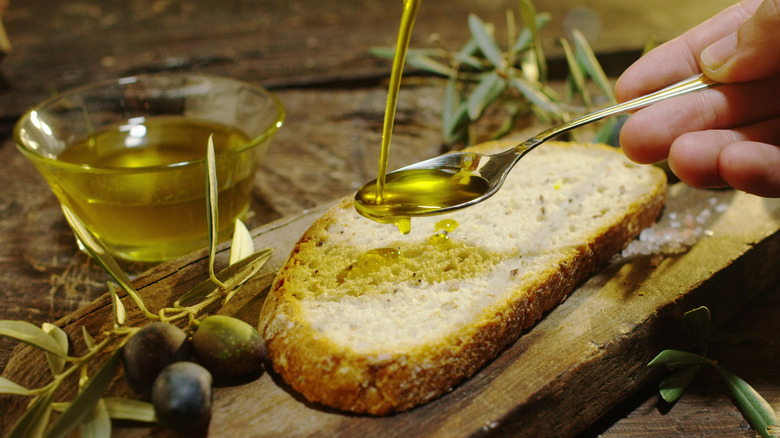What Does It Mean When Your Olive Oil Tastes Bitter?
As far as cooking oils go, olive oil has one of the strongest flavor profiles. Whatever you decide to fry or dress, olive oil will inevitably leave behind a particular taste. Extra virgin or extra refined, you'll usually be able to detect some degree of bitterness. According to Olive Oil Source, factors such as the type of olives, the time of year they were picked, and the conditions of the extraction process all influence the levels of bitterness. That's because the bitterness you're tasting comes from the naturally occurring polyphenols in the oil, and it's actually a good thing.
As Well+Good explains, olive oil is naturally less acidic and is already considered a "healthy fat." Olive oils with high polyphenol content, therefore, are that much more beneficial. Healthline further elaborates that polyphenols function as antioxidants and they reduce inflammation, which means the more bitter an olive oil tastes, the better for you it is.
Bitterness in olive oil also indicates its freshness
Not only is bitter-tasting olive oil better for you, it's also a sign that it's a better quality product, because the polyphenol content changes significantly during both the extraction process and over the course of the shelf life. Allrecipes explains that heat kills polyphenols, so olive oil that is cold-pressed (the more expensive kind) tends to be more bitter. High-polyphenol olive oil is sold in dark or green-tinted glass to protect it from light and oxygen, so if you're buying olive oil in a clear plastic bottle, that's a surefire way to determine its quality.
Polyphenols do diminish over time, so fresh olive oil is more bitter than olive oil on the brink of expiration. Olive oil is only considered fresh nine months after it's been pressed (or 18 months if stored in a cool environment). Olive oil with no bitterness, therefore, is either no longer fresh, or ultra-refined to the point that the polyphenols are wiped out.

